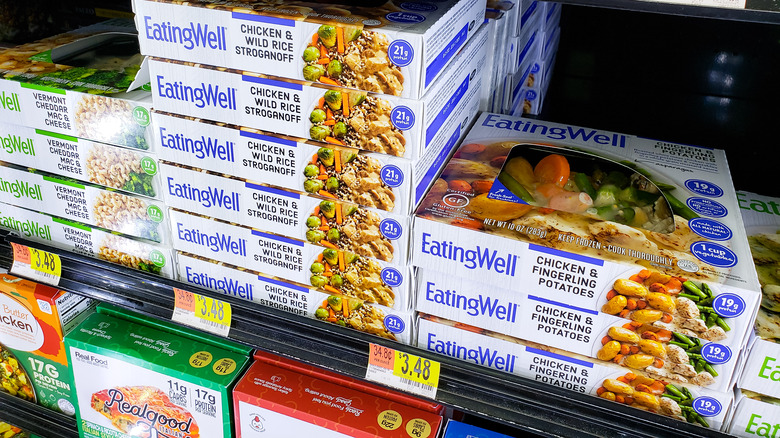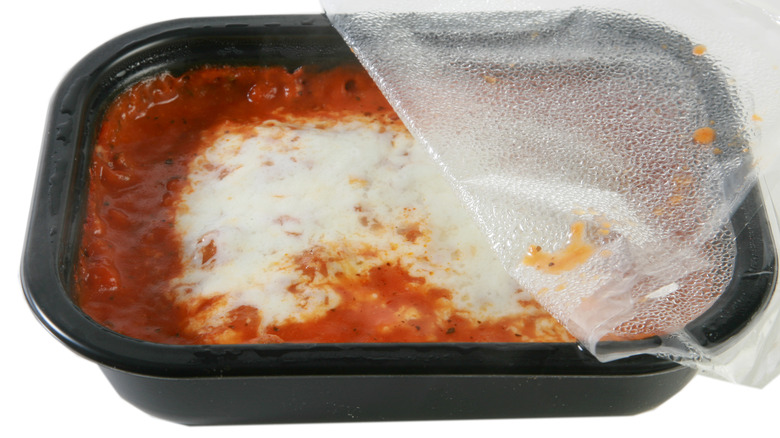Nutritionist Exposes Everything Fake About Frozen Dinners
Think that frozen dinners today are much better than the TV dinners that Danny DeVito as Mr. Wormwood delighted in eating in "Matilda"? We did, too, until will talked to board-certified naturopathic doctor, Dr. Olivia Audrey. Audrey, who sat down exclusively with Mashed to delve into the dubious world of frozen dinners, taught us to think again.
As of 2020, Research and Markets celebrated that, globally, the frozen food market was growing at an exhilarating pace. Strapped for time and short on cash, avocado-toast eating, oat milk-guzzling Millennials are some of the market's most eager consumers. But, as Dr. Audrey warned Mashed, the decision to save time and money on a frozen dinner might end up costing us dearly in the long run. "The high convenience factor for frozen dinners comes with a very hefty price tag on our health," Audrey said. This is true, not least because frozen foods contain "chemical compounds and ingredients we can barely pronounce let alone understand the effects on our bodies."
The first thing to consider when buying a frozen meal is how your dinner was preserved. Flash-frozen dinners, for example, imply that your food "directly or indirectly" came in contact with liquid nitrogen. And, per Audrey, meals frozen cryogenically will have lost "a great deal of nutrient value through each step of the process." But more sinister than freezing methods employed are the ingredients added to many frozen dinners for preservation purposes.
Many frozen dinners are made using a 'cousin to antifreeze'
Defrost a lasagna for dinner, and it might not be just lasagna you're devouring. Stick a frozen citrus-glazed chicken into the microwave, and you may end up cutting into more than you bargained for, too. That's because, per Dr. Olivia Audrey, frozen dinners are commonly high in high fructose corn syrup (HFC) and sodium. "Aside from being a refined petroleum product, HFC also contributes to insulin resistance, weight gain, and fatty liver and kidney disease," Audrey warned Mashed. Sodium, in and of itself, isn't a bad thing. But, according to Audrey, many "frozen dinners contain in excess of eight times the [recommended] daily amount of sodium, which can lead to diabetes, kidney issues, hypertension, and many other health issues." Yikes.
More concerning still are the chemicals companies add to frozen dinners to preserve flavor and texture. One of the biggest villains to watch out for is polysorbate 80, a chemical that Audrey explained, "keeps foods from sticking together when frozen and reheated multiple times." Important? No doubt. But ... it's also linked to tumor growth, headaches, heart issues, and digestive problems.
Finally, there's propylene glycol, which, Audrey told Mashed, "keeps foods texture and form intact throughout the different stages of processing prior to consumption." And while you might not want your frozen chicken pot pie feeling turning to mush in your mouth, you probably don't want to dine on antifreeze for dinner, either. Propylene glycol isn't antifreeze, but per Audrey, "it's a close cousin," and found in many petroleum products.

